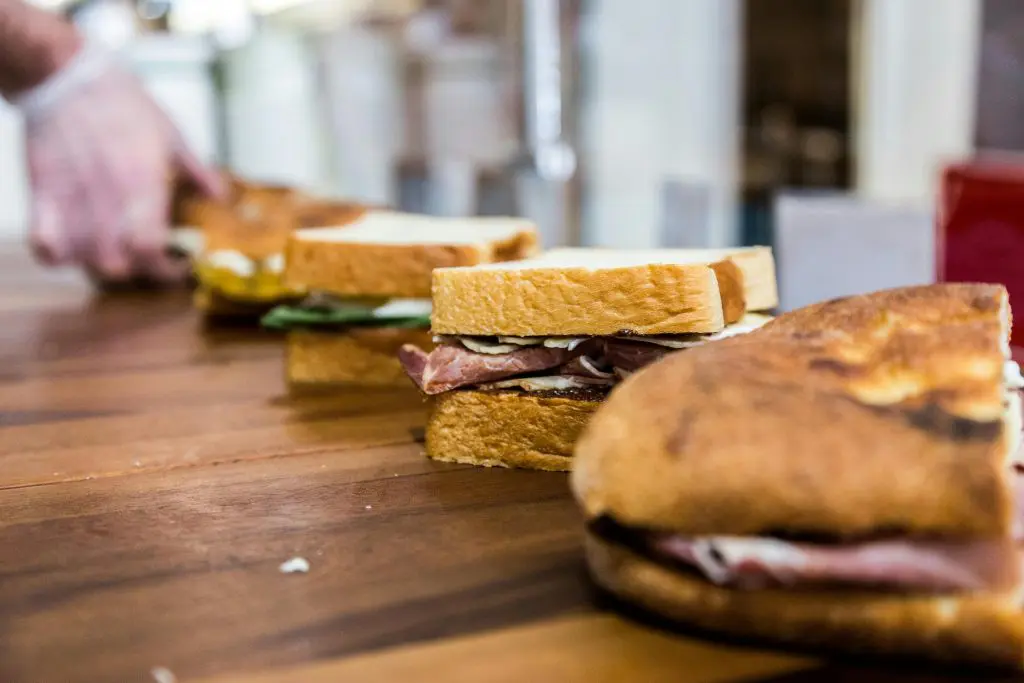
Lynas Foodservice Invests £4.3m in Renewable Energy to Cut Emissions and Costs Lynas Foodservice, the largest family-owned company in its sector on the island of Ireland, has invested £4.3 million in renewable energy infrastructure at its headquarters in Coleraine, with the support of Bank of Ireland. The investment includes the installation of solar panels, a […]
Lynas Foodservice, the largest family-owned company in its sector on the island of Ireland, has invested £4.3 million in renewable energy infrastructure at its headquarters in Coleraine, with the support of Bank of Ireland.
The investment includes the installation of solar panels, a 1.25MW wind turbine, and the development of a microgrid system that allows the company to store energy onsite in batteries and export any excess back to the national grid.
Lynas’s implementation of a microgrid system offers a forward-thinking solution to grid instability and energy price volatility. Microgrids, which can operate independently from the main grid, are increasingly used by businesses to maintain continuous power during outages and manage demand efficiently. This is particularly crucial for companies like Lynas that rely on 24/7 refrigeration and power-hungry operations.
Managing Director Andrew Lynas said the upgrades will enable the company to meet 75% of its electricity needs from renewable sources across its Coleraine-based businesses, warehouses, and offices.
“This is a significant investment for the business. The changes we are implementing will deliver 75% renewable electricity to all the businesses, warehouse and offices on-site here in Coleraine,” Mr Lynas said.
“They will help us to minimise the environmental impact of our business, give us energy security and reduce our vulnerability to energy price fluctuations.”
He added that the renewable energy investment has effectively removed the equivalent energy load of 700 homes from the local grid, contributing to wider sustainability efforts in the region.
The company, which has been in operation for over 70 years, supplies a wide range of customers including hotels, restaurants, coffee shops, schools, hospitals, and major fast-food chains. It also operates 11 retail outlets and has recently expanded into Scotland.
While much of the climate conversation focuses on energy and transportation, the foodservice industry plays a significant role in global greenhouse gas emissions. From refrigeration and delivery fleets to food waste and packaging, the sector has a large carbon footprint. Lynas’s move to decarbonise its energy use positions it at the forefront of a wider industry shift toward more sustainable operations.
Mr Lynas credited Bank of Ireland’s Danielle Whoriskey for supporting the company’s green transition.
“We are creating a more environmentally conscious and sustainable business which is an important driver for us and is increasingly important to our customers,” he said.
Danielle Whoriskey of Bank of Ireland added:
“With sustainability a focus for all industries and sectors, we are committed to playing our part by supporting local businesses to integrate environmentally friendly infrastructure and operations as they evolve and expand.”
“Having been in business for more than seven decades, this latest investment is creating a more sustainable future for the business and a more sustainable food eco-system, and we are proud to support them in this next step of their growth journey.”
Three generations of the Lynas family have been involved in the company, which now boasts a multi-million pound turnover and plays a central role in the Irish foodservice sector.
Lynas Foodservice’s £4.3 million investment in renewable energy marks a major step toward sustainability and long-term energy resilience. By integrating solar power, wind energy, and battery storage into its operations, the company is not only reducing its environmental impact but also enhancing energy security and cost efficiency. Backed by Bank of Ireland, this project demonstrates how a family-owned business in Ireland can lead by example in the transition to a low-carbon future, benefiting both the planet and the local economy.
Having tackled energy, the next frontier for Lynas and similar companies may be circular economy practices, particularly reducing food waste and improving packaging sustainability. These efforts can further cut emissions while improving supply chain efficiency, areas increasingly demanded by both consumers and regulators.
So think on this. How can your business become a local leader in transitioning to a low-carbon future?
At All-Ireland Sustainability, we’re committed to building a greener, fairer island, together. Stay informed on the latest environmental initiatives, community action, and policy developments shaping sustainability across Ireland, North and South.
👉 Sign up for our newsletter today and be the first to hear about upcoming events, expert insights, and ways to get involved.
Whether you’re a seasoned advocate or just starting your journey, new members are always welcome.
Subscribe now and be part of the All-Ireland Sustainability network.